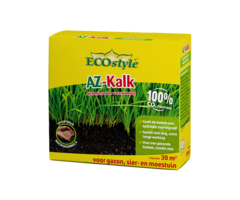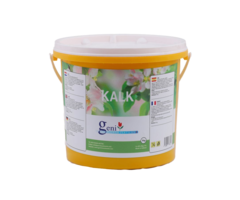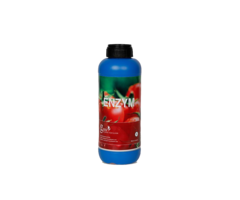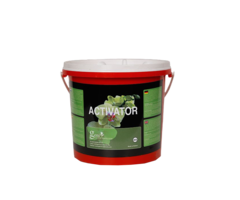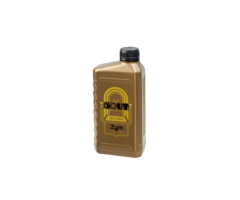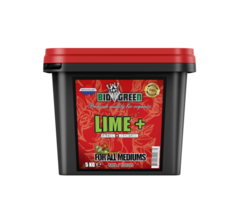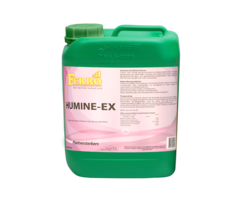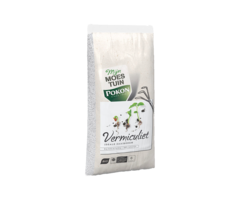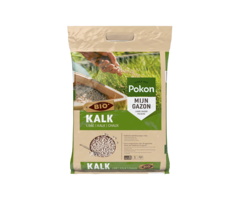Soil Conditioner ~ Improve your substrate
A soil conditioner is a substance that are added to soil to improve the quality of the soil. A soil conditioner is often used in plant cultivation to improve the soil which can result in higher yields a healthier crop. There are different types when it comes to a soil conditioner, each soil conditioner has its own unique properties.
 Worm Manure
Worm Manure
A commonly used soil conditioner is vermicompost. This is compost made by worms. Worms eat organic material and break it down into nutrients that are more easily absorbed by plants. Vermicompost also contains beneficial microorganisms that improve soil health. It can be used as soil cover or mixed into the soil as a soil conditioner.
Bat manure
Bat guano is another popular soil conditioner used in plant cultivation. Bat guano products are the droppings of bats and is rich in nutrients such as nitrogen, phosphorus and potassium. It can be used as a soil conditioner as well as a fertilizer to boost plant growth and yield.
What makes bat guano such a great soil conditioner is that it is a natural product. It is produced without the use of artificial chemicals or processes. This makes it a sustainable option for growers looking for a natural alternative to artificial fertilizers.
In addition, bat guano often contains beneficial microorganisms that improve soil health. These microorganisms help break down organic matter and make nutrients more available to the crop. This can lead to healthier plants and higher yields.
Mycorrhiza fungi
Mycorrhiza fungi is another interesting soil conditioner often used in plant cultivation. These fungi live in symbiosis with the roots of plants and help your crop better absorb nutrients from the soil. In return, the fungi receive sugars from the crop.
Mycorrhiza fungi form an elaborate network of fine filaments, also called hyphae, that extend into the smallest openings and pores of the soil. This allows your crop to absorb nutrients that would otherwise be inaccessible to plants.
In addition, mycorrhizal fungi can help improve soil structure. This is because the fungi break down organic matter, making the soil more aerated and permeable to water. This makes mycorrhiza fungi an excellent soil conditioner.
Fertilizers
Finally, there are fertilizers that can improve soil quality. These fertilizers contain nutrients such as nitrogen, phosphorus and potassium. Although they are effective in improving soil fertility, they can also be harmful to the environment if used in large quantities. Therefore, it is important to use them wisely and ensure a good balance between natural and artificial fertilizers. In plant cultivation, a soil conditioner is an important means of increasing yields and keeping plants healthy.
A soil conditioner is a substance that are added to soil to improve the quality of the soil. A soil conditioner is often used in plant cultivation to improve the soil which can result in higher yields a healthier crop. There are different types when it comes to a soil conditioner, each soil conditioner has its own unique properties.
 Worm Manure
Worm Manure
A commonly used soil conditioner is vermicompost. This is compost made by worms. Worms eat organic material and break it down into nutrients that are more easily absorbed by plants. Vermicompost also contains beneficial microorganisms that improve soil health. It can be used as soil cover or mixed into the soil as a soil conditioner.
Bat manure
Bat guano is another popular soil conditioner used in plant cultivation. Bat guano products are the droppings of bats and is rich in nutrients such as nitrogen, phosphorus and potassium. It can be used as a soil conditioner as well as a fertilizer to boost plant growth and yield.
What makes bat guano such a great soil conditioner is that it is a natural product. It is produced without the use of artificial chemicals or processes. This makes it a sustainable option for growers looking for a natural alternative to artificial fertilizers.
In addition, bat guano often contains beneficial microorganisms that improve soil health. These microorganisms help break down organic matter and make nutrients more available to the crop. This can lead to healthier plants and higher yields.
Mycorrhiza fungi
Mycorrhiza fungi is another interesting soil conditioner often used in plant cultivation. These fungi live in symbiosis with the roots of plants and help your crop better absorb nutrients from the soil. In return, the fungi receive sugars from the crop.
Mycorrhiza fungi form an elaborate network of fine filaments, also called hyphae, that extend into the smallest openings and pores of the soil. This allows your crop to absorb nutrients that would otherwise be inaccessible to plants.
In addition, mycorrhizal fungi can help improve soil structure. This is because the fungi break down organic matter, making the soil more aerated and permeable to water. This makes mycorrhiza fungi an excellent soil conditioner.
Fertilizers
Finally, there are fertilizers that can improve soil quality. These fertilizers contain nutrients such as nitrogen, phosphorus and potassium. Although they are effective in improving soil fertility, they can also be harmful to the environment if used in large quantities. Therefore, it is important to use them wisely and ensure a good balance between natural and artificial fertilizers. In plant cultivation, a soil conditioner is an important means of increasing yields and keeping plants healthy.
Available in: 2kg | 5kg | 10kg....
Available in: Bucket of 5 kilograms....
Available in: 1 liter | 5 liters....
Available in: Bucket of 4 kilograms....
Available in: 1 liter & 5 liter....
Available in: 5 kilograms....
Av...
Available in: 5kg & 10kg....
A soil conditioner is a substance that are added to soil to improve the quality of the soil. A soil conditioner is often used in plant cultivation to improve the soil which can result in higher yields a healthier crop. There are different types when it comes to a soil conditioner, each soil conditioner has its own unique properties.
 Worm Manure
Worm Manure
A commonly used soil conditioner is vermicompost. This is compost made by worms. Worms eat organic material and break it down into nutrients that are more easily absorbed by plants. Vermicompost also contains beneficial microorganisms that improve soil health. It can be used as soil cover or mixed into the soil as a soil conditioner.
Bat manure
Bat guano is another popular soil conditioner used in plant cultivation. Bat guano products are the droppings of bats and is rich in nutrients such as nitrogen, phosphorus and potassium. It can be used as a soil conditioner as well as a fertilizer to boost plant growth and yield.
What makes bat guano such a great soil conditioner is that it is a natural product. It is produced without the use of artificial chemicals or processes. This makes it a sustainable option for growers looking for a natural alternative to artificial fertilizers.
In addition, bat guano often contains beneficial microorganisms that improve soil health. These microorganisms help break down organic matter and make nutrients more available to the crop. This can lead to healthier plants and higher yields.
Mycorrhiza fungi
Mycorrhiza fungi is another interesting soil conditioner often used in plant cultivation. These fungi live in symbiosis with the roots of plants and help your crop better absorb nutrients from the soil. In return, the fungi receive sugars from the crop.
Mycorrhiza fungi form an elaborate network of fine filaments, also called hyphae, that extend into the smallest openings and pores of the soil. This allows your crop to absorb nutrients that would otherwise be inaccessible to plants.
In addition, mycorrhizal fungi can help improve soil structure. This is because the fungi break down organic matter, making the soil more aerated and permeable to water. This makes mycorrhiza fungi an excellent soil conditioner.
Fertilizers
Finally, there are fertilizers that can improve soil quality. These fertilizers contain nutrients such as nitrogen, phosphorus and potassium. Although they are effective in improving soil fertility, they can also be harmful to the environment if used in large quantities. Therefore, it is important to use them wisely and ensure a good balance between natural and artificial fertilizers. In plant cultivation, a soil conditioner is an important means of increasing yields and keeping plants healthy.


